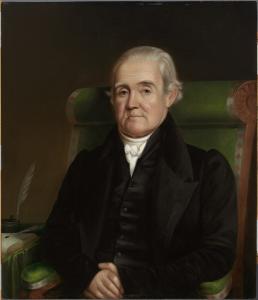I was a High School dropout.
When I worked at Wahrenbrock’s Bookstore in San Diego, I spent several years taking classes at San Diego’s Evening College. While I was really only following my nose and taking what seemed interesting, somehow it mapped pretty nicely the lower division courses for an English major. That bit of information just sets a stage.
Later when I began to earn my undergraduate degree, shifted now to Psychology, with a plan of heading off to graduate school, and, actually later in graduate school (not as a psychology major, as that turned out), as well; my absolutely necessary down time mostly consisted of reading Rex Stout’s Nero Wolfe novels.
The advantages were few but obvious. Stout could string sentences together nicely. His characters were charming. And Stout’s forty-eight forays into Nero Wolfe’s life and adventures were rarely complicated with new plots. Perfect for my purposes at the time. I remain endlessly grateful.
One evening I opened my latest Wolfe to come upon a scene where his trusty assistant Archie walks into Wolfe’s study only to witness the master tearing pages out of his new Merriam-Webster’s dictionary and throwing the offending sheets into the fireplace.
The novel must have been published a little after 1961 when Merriam-Webster published its controversial “Third International” edition. The new Third was controversial for many reasons, including its massive deletion of archaic words. Hence Wolfe’s ire…
This struck a major chord for me.
And this is what I’m actually thinking about today, the 16th of October, which in 1758 was the birthday of Noah Webster, the American polymath and lexicographer.
One reason I was able to escape the rounds of poverty my place among our culture’s underclasses pretty much assured was undoubtedly due to Merriam-Webster.
From a very, very early age I recall going to the library and walking up to the stand that, wherever we were, held their copy of Merriam-Webster. I would look up a word. That would lead to another. That would lead to another. I knew my time at the dictionary was done when I found myself at the narwhal listing.
I would savor the picture of the unicorn of the sea. Then move on.
I started early enough in this enterprise that my first experiences were with the Second. I didn’t know such subtleties, of course. And as this project continued for years I suspect I didn’t even notice the shift to the new edition.
The dictionary itself traces a direct line to Noah Webster. At his death the Merriam brothers purchased the existing stock and rights to revise and reprint. He was the beginning of our great American English dictionary.
So. Just a pause. Thinking of several things. Rex Stout. Noah Webster. His wonderful dictionary.
And, also, how things play out in this multi-causal universe. In real human life, the life I’ve led, in the lives I’ve witnessed; its actually pretty rare for one thing to be the actual cause of something. It’s easy to see random. It’s also easy within so much random to reach for some secret through line, a reason.
The universe as I’ve encountered it is neither about meaning nor meaninglessness.
It’s much bigger. It is wild. It is mysterious.
Sometimes it’s terrible. And, well, for all of us, it involves some moment we like to think of as a beginning. A word we like is birth. And another we name an ending. In human affairs, our word for this is death.
But, actually, it’s more complicated. If there’s a line, and I’m not all that sure there really is, but for our purposes a line, or lines, really threads. Threads appear. Threads wind. Threads intertwine. Threads disappear.
But who really is to say when something begins? And when something ends?
There are handy markers. Stumbling upon Merriam-Webster for one for one. Filled with joy. So many joys, small and great. Filled with sorrow. So much sorrow. So much…
But as we open large, as we let what is play, other perspectives open.
An invitation.
Mystery piled upon mystery…














